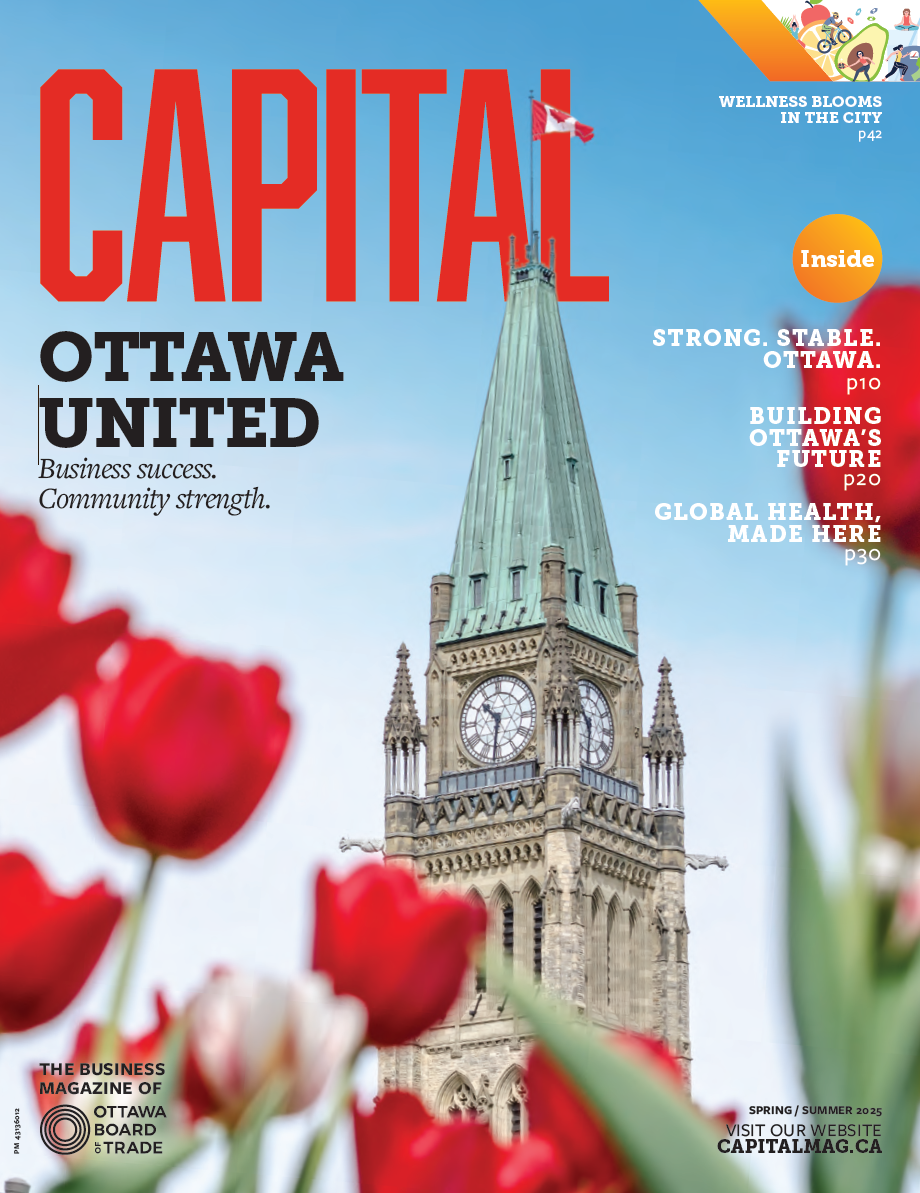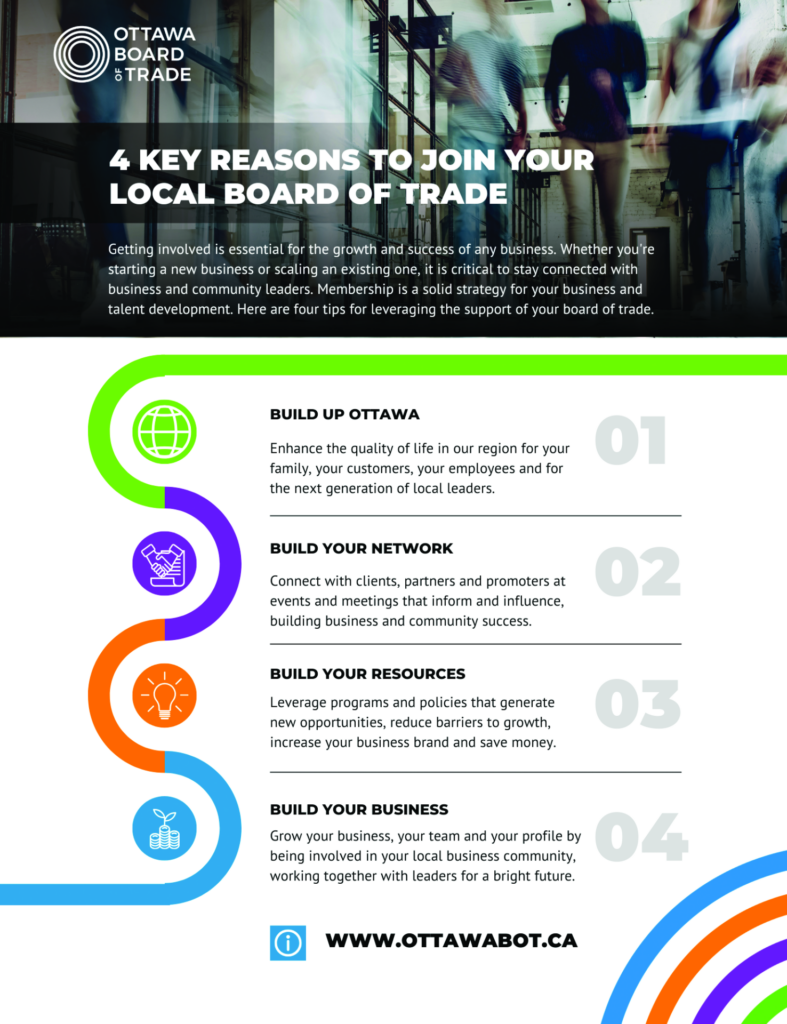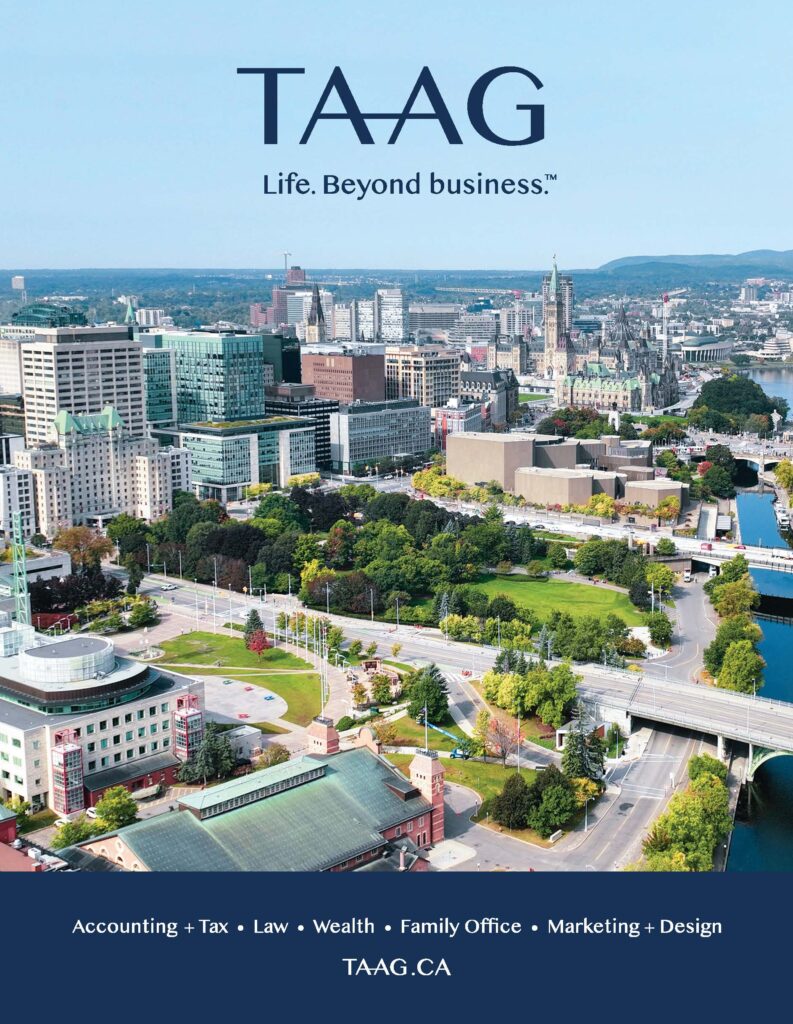The Chamber in Action: Asking the Right Questions
New partnerships create opportunities to close the talent gap
By Barbara Balfour
Addressing Ottawa’s skilled labour shortage—a trend that the Ottawa Business Growth Surveys have flagged for the past three consecutive years—needs more than just action by individual hiring companies.
The Ottawa Chamber of Commerce is looking across the Ottawa business community to identify strategies to engage business leaders in new ways. One strong pool of ambassadors for Ottawa includes the winners of the annual Forty Under 40 awards, one of the most sought-after and distinguished business awards in the national capital region.
The awards recognize an emerging group of trendsetters in the business community, who serve as important change agents for the 21st-century workforce. They’re evaluated against criteria including their achievements in business, credentials in their field of expertise, and leadership roles in the community.
“Because they are such a successful cohort in Ottawa, we see them as the keys to helping address the talent problem,” says Ian Faris, the Chamber’s president and CEO. “They are magnets to draw other bright people into the city, and are committed to improving the overall business environment here.
“We also need to ask ourselves whether we’re producing the right type of graduates for our rapidly changing business environment. Are we providing enough training for existing employees? Are we doing enough to match internationally educated professionals with the right skills?”
About 18 months ago, the Chamber conducted a priority-setting exercise that focused on three key areas. The first area involves the attraction, retention and growth of talent.
The Chamber has been closely working with employers and stakeholders, including Hire Immigrants Ottawa and the Ottawa Local Immigration Partnership, on the Express Entry system—the federal government’s skilled immigration program. “We constantly seek feedback from Ottawa employers on how we can best advocate for a system that works for employers and candidates, because we know that Ottawa is competing for world-class talent not only with other Canadian cities but also with other countries,” says Faris. “To attract and retain the best people, we need to develop a top-notch immigration system, but we also need to ensure that employers have access to cultural and other training, which is being delivered through our partner organizations. Having a diverse workforce will be one of our greatest competitive advantages.”
The second area looks at tapping into post-secondary cohorts of foreign students. “Some of those students come here with capital they may want to invest in a company. We’re working to find them opportunities when they graduate—getting them co-op placements or internships while they’re still in school, and working with post-secondary institutions to identify and convey the needs of the business community and making sure those needs are met with what they’re teaching,” Faris says.
The third area involves working with Ottawa Tourism to draw more conferences and events to the city, and to showcase Ottawa as an attractive place to live, work, and play.
In addition to these partnerships, the Chamber plays a key role in the Local Employment Planning Council (LEPC) also known as the Ottawa Employment Hub, a joint initiative with Algonquin College to provide a better skills match between employers and employees. “We need to be more innovative when it comes to recruitment,” says Faris. “Many people might look in a database, give up, and say there’s a talent shortage. But the fact is, there are a lot of untapped resources out there that can help us solve this problem.”
Barbara Balfour is a freelance journalist, TV host, and producer based in Ottawa.
A Revamp on the Horizon
By Warren Creates
New recommendations for the Temporary Foreign Worker Program (TFWP) aim to increase the program’s accessibility.
The TFWP is an initiative run by the federal government to encourage Canadian employers to hire foreign nationals where qualified Canadian citizens and permanent residents are not available to fill labour shortages. The program was introduced in 1973, and has been evolving ever since.
In 2015, 113,580 foreign citizens requested positions with the TFWP throughout Canada. Of those 113,580 requests, 40,589 were for positions in Ontario. In 2015, the TFWP filled 90,211 vacant job positions throughout Canada; 33,539 of these positions were in Ontario.
The program has been subject to significant scrutiny over its many years. Critics are polarized between a desire to keep Canadian work with Canadians workers, and a desire to expand the program to further globalization and immigration initiatives.
In response to criticism, the Liberal government has asked the House of Commons’ Standing Committee on Human Resources, Skills and Social Development and the Status of Persons with Disabilities to conduct a study of the TFWP. Its report is expected to contain recommendations for improving the program. Some recommendations proposed in submissions made to the Committee include implementing measures to facilitate workers’ transitions to permanent residency before their work permits expire; simplifying the application procedure for occupations that are in high demand, while accounting for the varied labour markets found across Canada; introducing a section dedicated to assessing applicants in the digital technology sector, which has been experiencing a particularly severe employee shortage; and, introducing transparent guidelines and criteria, to promote consistency.
Though the report has yet to be released, there is an air of optimism, as both foreign workers and Canadian employers stand to benefit from positive adjustments to this program.
Warren Creates is a certified specialist in immigration law. He is the head of the Immigration Law Group at the Ottawa law firm Perley-Robertson, Hill & McDougall.

























